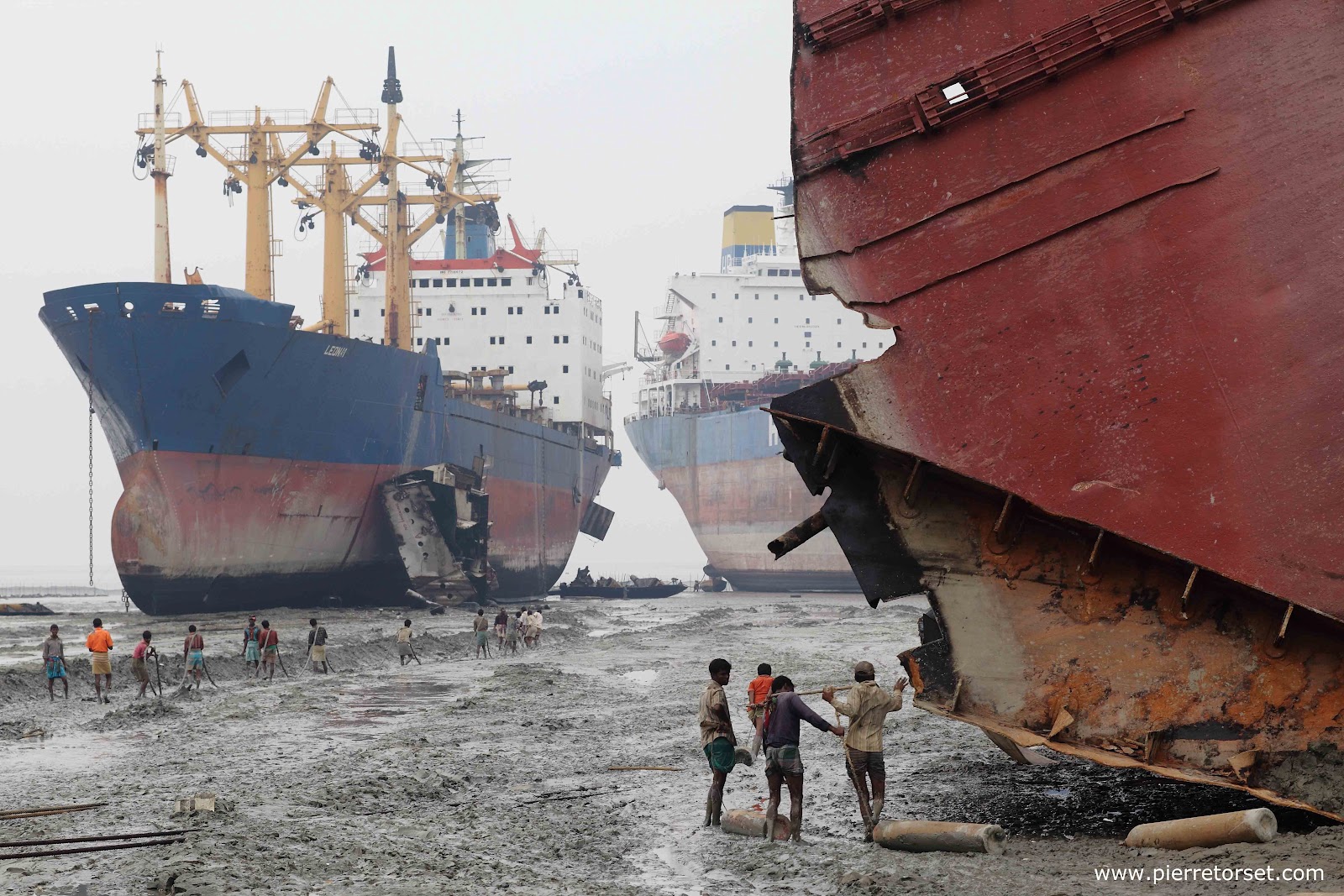In its proposal for a new regulation on waste shipments published last week, the European Commission surprised many observers by rejecting their earlier romance with the Hong Kong Convention and return to the Basel Convention’s affirmation that the Global South should not become the world’s dumping ground for hazardous wastes, even when those wastes are ships.
In 2013, EU-flagged vessels were removed from the scope of the waste shipment rules by way of the EU Ship Recycling Regulation, which aimed to ignore the Basel Convention in favor of following the Hong Kong Convention. To date, the Hong Kong Convention, crafted in 2009 under the auspices of the International Maritime Organization, is still not in force. Meanwhile, the Basel Convention’s “Basel Ban”, designed with a pointed intent to protect developing countries from exploitation, did enter in force as new Convention Article 4a on 5 December 2019.
The EU Waste Shipment Regulation proposal now states that EU-flagged vessels intended to be scrapped whilst under EU jurisdiction are no longer exempted from EU waste laws and need to comply the with Article 4a; this makes it illegal to export any form of hazardous waste from OECD to non-OECD countries for any reason. In a report published in September 2020, bolstered by a legal analysis by the Center for International Environmental Law (CIEL), the NGOs European Environmental Bureau, Basel Action Network, Greenpeace and the NGO Shipbreaking Platform had urged the EU to realign its legislation to respect its international legal commitments under the Basel Convention, including the Ban.
“That the EU has reinstated the legal validity of the Basel Ban and realised they could no longer pretend that the Ship Recycling Regulation could somehow escape international waste law is a major victory for global environmental justice and governance. The EU proposal now reflects a clear mandate that both the Waste Shipment Regulation and the ship recycling rules must apply to old ships at the same time.” Jim Puckett – Executive Director – Basel Action Network (BAN)
Unfortunately though, while this is seen as a significant signal, very little of the world’s fleet of ships, including those flying EU flags, are going to be caught in an EU port when they declare they are to be recycled. It remains all too easy for ship owners to wait to make the fateful scrap announcement in the ports of non-OECD countries or even on the high seas, and thus legally avoid the Basel Ban. The Hong Kong Convention governs flag states, but flags are easily changed; further, the Hong Kong Convention does have any trade restrictions to prevent the Global South from being disproportionately burdened with the world’s most hazardous and difficult-to-recycle wastes.
Meanwhile, 30% of the tonnage broken down on the infamous shipbreaking beaches of India, Bangladesh and Pakistan, harming human health and the environment, is owned by EU-domiciled shipping companies. Thus it is that NGOs are seeking legislative reforms that place legal jurisdiction over exports defined not only by port states, and flags states, but by the countries that are the corporate domicile of ship owners as well.
“The decision to scrap these European ships is taken in offices in Hamburg, Athens, Antwerp, Copenhagen and other EU shipping hubs. They are the true exporters regardless of where the vessels happen to be in the world or what flags they fly. Clearly, new efforts must be undertaken to prevent these owners from continuing to circumvent the intent of the Basel Convention to prevent toxic waste dumping.” Ingvild Jenssen – Executive Director and Founder – NGO Shipbreaking Platform
According to the environmental and human rights groups, new thinking on how to hold shipping companies accountable for the proper management of their end-of-life ships is aligned with emerging European policies. The European Green Deal calls on the EU to manage its own waste and encourage a circular economy by building a robust and dynamic market for secondary materials, and one that avoids the blatant cost externalisation made possible via exports to weaker economies.
“We now have an excellent opportunity to close the dumping loopholes and unlock the potential of the EU market for much needed responsible, environmentally just and clean ship recycling, while offering the EU steel manufacturing industry increased availability of scrap steel, avoiding more energy intensive primary production and thus lowering our carbon footprint.” Stéphane Arditi – Director for Policy Integration and Circular Economy – European Environmental Bureau (EEB) Photo: Pierre Torset





